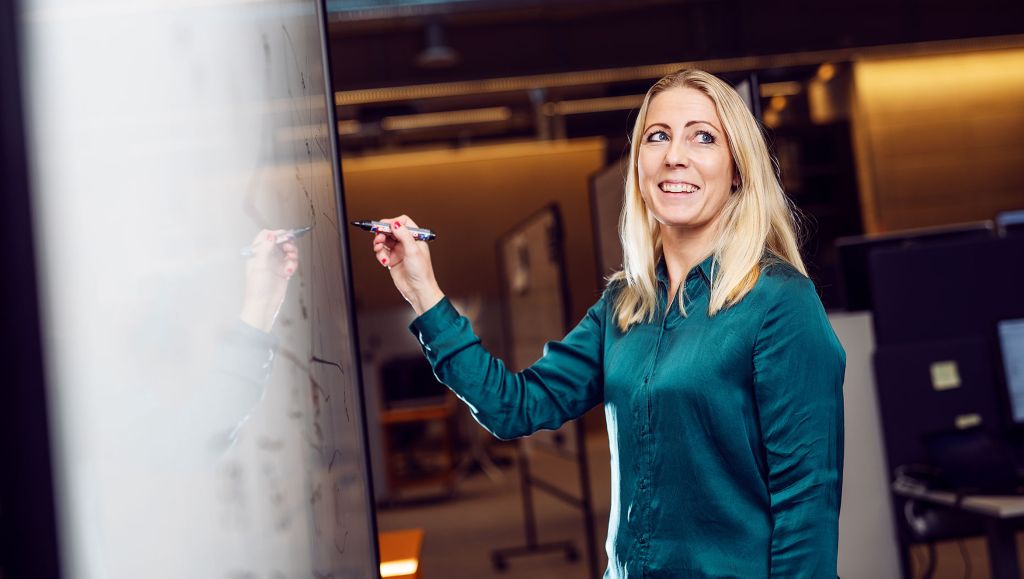Meet Lena Jansson: “It is extremely exciting to work in such a new and developing area”


Simply put, fuel cells work by combining hydrogen with oxygen, with the resulting chemical reaction producing electricity. The process is completely emissions-free, with the only by product being water vapor. In principle, a fuel cell works much like a battery, except that it generates its own electricity from the hydrogen on-board rather than be charged from an external source. This means it can deliver longer driving ranges, and therefore is more feasible for long-haul transportation.
“It’s clear that the automotive industry is heading towards electromobility and a fossil-free future, but at the moment the current battery technology cannot offer the ranges needed for long-haul transport,” says Lena Jansson, Director Integration and Deployment. “This is why we need fuel cells. They will complement battery electric vehicles and ensure we can deliver emission-free vehicles for long-haul, heavy-duty transportation too.”
As part of its ambition to have all new vehicles operate CO2 neutral by 2040, the Volvo Group has intensified its efforts to develop fuel cell technology. Last year it has signed an agreement to form a joint venture* with Daimler Truck AG to help accelerate development, with the shared ambition of having fuel cells in full-scale production by the second half of this decade.
Right now, Lena Jansson and her colleagues are working with early vehicle integration and exploring technical concepts for critical areas like hydrogen storage, cooling systems, battery strategy, energy optimization and hydrogen safety. Fuel cell vehicles require a lot of cooling capacity and the cooling system is critical for ensuring the performance and durability of the system.
“It is extremely exciting to work in such a new and developing area,” says Lena Jansson. “We are faced with a huge climate challenge, and the work we are doing with fuel cells will help enable us to greatly reduce emissions from the transport industry.”
The work we are doing with fuel cells will help enable us to greatly reduce emissions from the transport industry.
To achieve the Volvo Group’s ambitions for fuel cells, Lena Jansson sees three key challenges that will need to be meet. Firstly, the technology still needs to be developed further in order to produce competitive products that meet customer needs. Secondly, a new public infrastructure network for green hydrogen production and refueling will need to be built. And lastly, the costs of the products and fuel need to be competitive enough to make it commercially viable.
“The transition to renewable fuels is a major transformation” she says. “With our long history and experience within the automotive industry, and our highly skilled team of engineers, the Volvo Group is in a strong position to help make this transformation happen.”
LENA JANSSON
Title: Director Integration and Deployment
Age: 42
Background: 15 years of experience within Product Development, Connected Solutions and IT development at Volvo Cars and the Volvo Group. M.Sc. Automation and Mechatronics.
Years at Volvo Group: 11
What drives you: To work with great colleagues leading the transformation to enable sustainable transport.
Learn more about the future of transportation